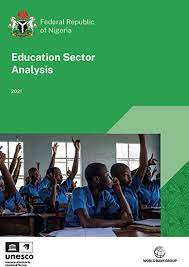Nigeria, Africa’s wealthiest country, possesses tremendous potential for economic growth. However, this wealth has failed to significantly improve the lives of most of its population, as two-thirds of Nigerians still live below the poverty line. One area deeply affected by this disparity is education, particularly in the northern regions where poverty is most prevalent and acts as a barrier to education. Despite substantial investments in foreign aid, the expected improvements in literacy levels, especially among girls, have not materialized.
From 2012 to 2022, numerous international development partners donated billions of dollars to improve education in Nigeria. For instance, the UK’s Department for International Development (DfID) committed £102 million to support a UNICEF-run girls’ education programme and an overall education support initiative. Additionally, £126 million was earmarked for education in various states.
Nevertheless, the outcomes remain far from satisfactory. The Global Partnership for Education (GPE) granted $100 million in 2015 to enhance education quality in the North-western region, while the Islamic Development Bank supported the Almajiri education program in 2012. Furthermore, in 2021, the UK government donated over $10 million from the global education summit donation. However, despite these considerable investments, the number of out-of-school children, particularly girls, continues to rise. This raises the critical question: where have these funds gone, and why haven’t they translated into tangible results?
Foreign aid, despite its good intentions, has inadvertently contributed to a vicious cycle within Nigeria’s education system. The over-reliance on external assistance has created an environment conducive to corruption, mismanagement, and a lack of accountability. Instead of fostering sustainable development, aid has, in some cases, exacerbated existing issues, leading to a crisis in the education sector. The funds seem to disappear into a black hole, leaving the intended beneficiaries—the children of Nigeria—without the promised educational opportunities.
One of the major challenges in Nigeria’s education system is the lack of accountability and transparency in the allocation and utilization of foreign aid. The absence of a robust monitoring mechanism has allowed corruption to thrive, diverting funds away from their intended purpose. This raises concerns about the efficiency of aid delivery and calls for greater scrutiny and transparency in the management of these funds.
The call to wake up and invest in education reverberates throughout the narrative. Over-reliance on foreign aid has fostered a mentality of waiting for external support rather than cultivating self-sufficiency. The allocation of a percentage of the budget to the education sector often depends on the expectation of foreign funding, perpetuating a cycle of dependency. It is time for Nigeria to break free from this trap and take ownership of its education challenges.
The argument against foreign aid extends to its perceived role in perpetuating a form of neocolonialism within Nigeria’s education system. Aid-driven initiatives may inadvertently shape policies and programs in ways that align with the interests of donor countries, potentially compromising the autonomy of Nigeria’s educational landscape. This raises the question: does foreign aid truly empower nations or inadvertently subject them to external influence?
The solution lies in a paradigm shift—a reevaluation of how Nigeria approaches education investment. While foreign aid can be a catalyst for positive change, it should not be the sole solution. The government, civil society, and private sector must collaborate to develop sustainable strategies, ensuring that funds are effectively utilized, corruption is curtailed, and education becomes a priority independent of external support. Nigeria stands at a crucial juncture where the pitfalls of foreign aid in its education system must be addressed. The cycle of over-dependence, corruption, and crisis can only be broken through a concerted effort to invest in education domestically. It is time for Nigeria to assert its autonomy, redefine its education policies, and prioritize the future of its children without relying solely on external assistance.
Mukaddas writes from
Vanderbilt University, Tennessee, USA via
+17857606965
By Tijjani Mukaddas




